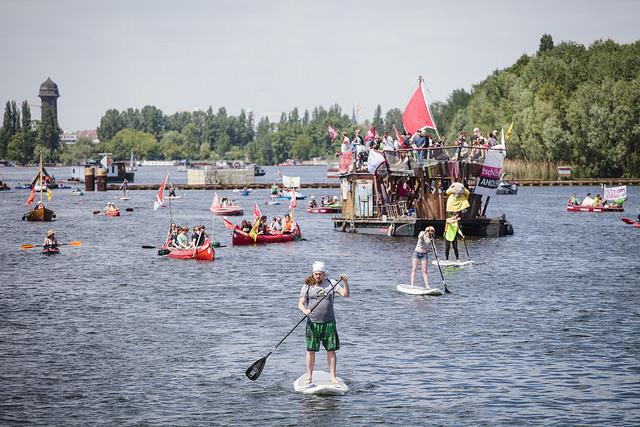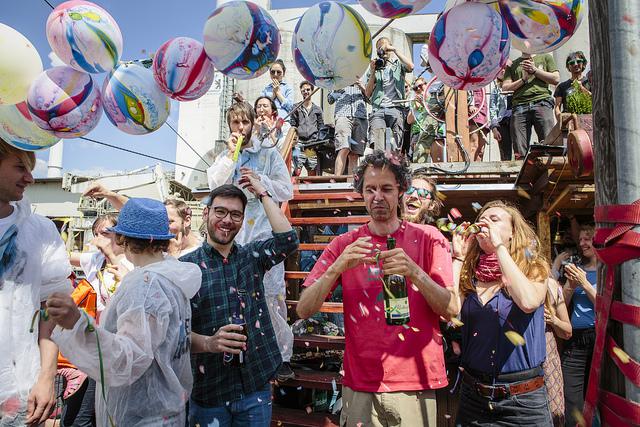By Marc Bühnemann.
After a wave of protests and resistance from civil society and the climate movement in Berlin, the last lignite-fired power plant in the city finally shut down on the 24th May 2017. Kohleausstieg Berlin and a number of climate, environmental and development organizations organized a celebration on boats in front of the power plant in order to bid farewell to the dirtiest of fossil fuels.

On a sunny day, activists and civil society organisations took to boats, canoes and rafts for the sake of commemorating the end of the lignite coal era in the German capital with the Coal & Boat 2017. The end of lignite coal in Berlin, will stop 600.000 tons of carbon dioxide being released into the atmosphere each year.
This success hasn’t been an easy one, but the perseverance of the climate movement has been proven to be fruitful. The Vattenfall operated power plant, Klingenberg, has always faced major opposition from the climate movement in Berlin. In 2009, the Swedish company announced plans to build a hard coal-fired power plant, which would have made the Klingenberg site the largest emitter of CO2 in the city. Local campaigns and continuous resistance however forced Vattenfall to scrap these plans. Similarly, plans to fire the plant with biomass, mainly imported from Liberia, were quickly abandoned as civil society criticized the plans as unsustainable and contributing to energy poverty in the African country. The final blow to Klingenberg was initiated when Kohleausstieg Berlin staged the first boat demonstration in 2016. One year later we were able to come back to the same place in order to celebrate!

Although this major win is an important step towards decarbonization in the city, the action also took place in order to increase pressure on Vattenfall and politics to quickly cease the operation of the three remaining hard coal-fired power plants in Berlin. The current plans to ban hard coal by 2030 are not ambitious enough in order to be compatible with the goals outlined in the Paris Agreement. The three power plants Reuter, Reuter-West and Moabit continue to be responsible for 20% of CO2 emissions in primary energy consumption in Berlin – not to mention other emissions such as nitrogen dioxide and mercury which pose a serious health threat for the public.
Furthermore, in addition to the destruction of nature and landscapes during extraction of fossil energy, the imported hard coal fired in these power plants is often connected to grave human rights abuses in countries such as Russia or South Africa and most prominently Colombia, where hard coal extraction is accompanied by reported killings of local opponents.
Currently, the senate and Vattenfall are planning a feasibility study on the complete coal phase out in Berlin. Until now this process has been very untransparent and the public or non-governmental stakeholders have not been involved. In order to accomplish the necessary coal phase out before 2030, it is important to avoid that profit interests of Vattenfall interfere with decarbonization in the city. Kohleausstieg Berlin will further put pressure on the government and the coal industry to achieve a quick coal phase out before 2030, so that we will be able to celebrate again in the near future.
[Video] https://www.youtube.com/watch?v=cAUbBmsRRvY
www.kohleausstieg-berlin.de (German)
Further impressions from the action: https://www.flickr.com/photos/kohleausstiegberlin/albums/7215768151456657